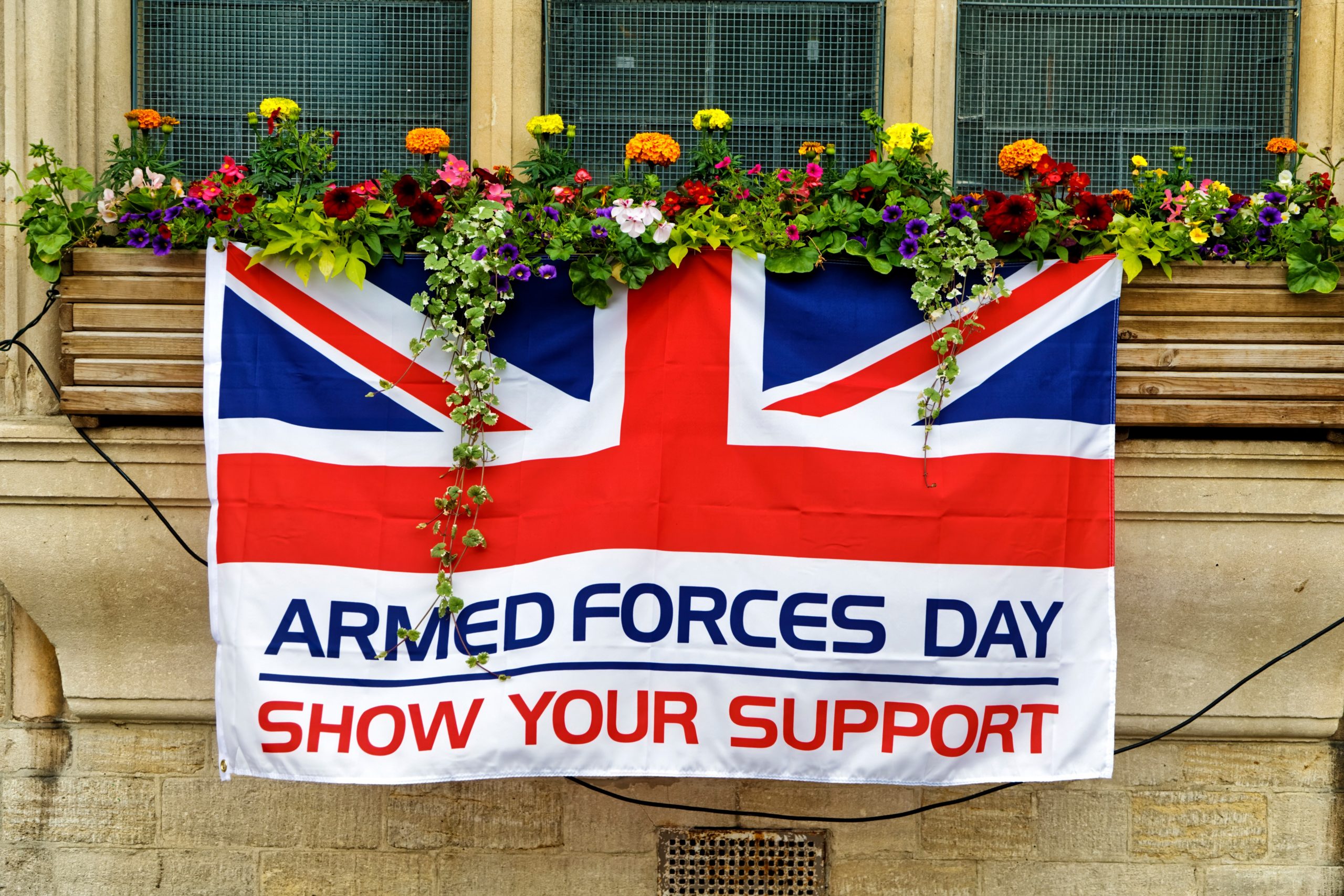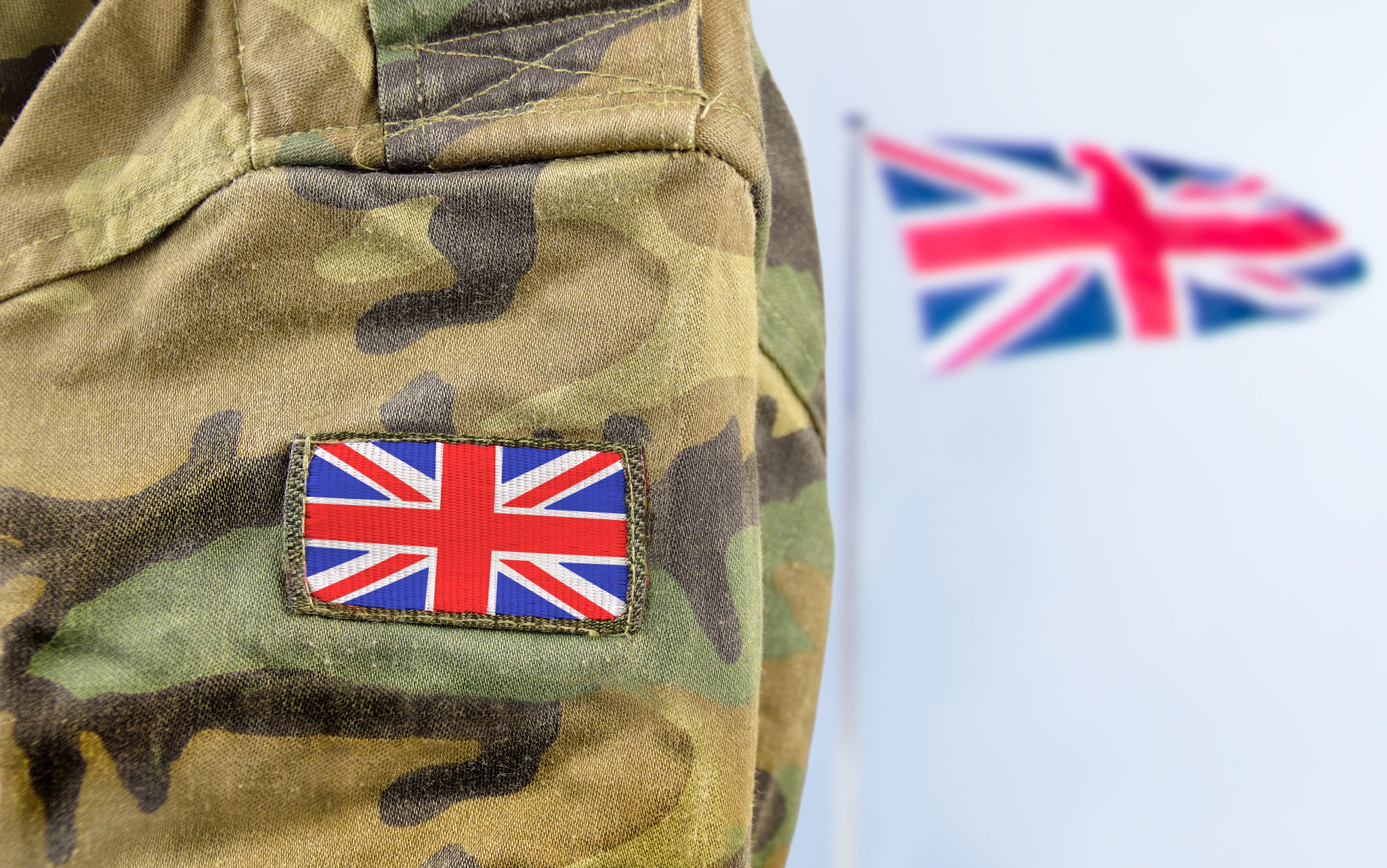For Armed Forces Day, one veteran told Vodafone UK staffers about living with disability and life after the Armed Forces.
“I ploughed my Corsa into the back of a HGV… something was wrong. But in time-honoured fashion, I didn’t go to the medics about it. And then I woke up one morning and I couldn’t read.”
This is when Alan Lock, then a 24-year-old Royal Navy engineer eagerly anticipating his first-ever overseas deployment as part of the crew of nuclear submarine HMS Vengeance, discovered that he was losing his sight. Alan was diagnosed with macular degeneration, an eye condition that led to him being registered blind.
Alan was one of a series of speakers telling Vodafone UK staffers about their experiences, both in and out of uniform, for Armed Forces Day 2022.
Although Alan’s loss of eyesight wasn’t due to a battlefield injury, this didn’t make the loss of his eyesight any easier to bear: “It wasn’t a particularly heroic end to my career. That made it mentally really challenging because, you know, my career three years in and I hadn’t been deployed anywhere. It’s really tough, particularly for somebody who’s 24 and losing your eyesight.”
Alan’s turning point came when he met another ex-Forces member while getting therapy – a blind skier. Inspired by this example, as well as by charity Blind Veterans UK and the determination of other disabled veterans, he decided in 2009 to take on a challenge: to row across the Atlantic from the Canary Islands to Barbados.
Along with a sighted navigator, Alan had to row 10 hours a day broken up into two-hour stretches of rowing followed by 20 minutes of rest. Some of their biggest worries weren’t about storms and waves, but energy – in more ways than one.
Renewing our commitment to supporting the armed forces community
"We're proud to renew our commitment to supporting the servicemen and women who protect our nation by re-signing the Armed Forces Covenant," says Helen Lamprell, General Counsel & External Affairs Director, Vodafone UK.
The seemingly endless cloud cover meant they had fewer chances to recharge their devices using portable solar panels, so they had to be frugal with power usage. Plus, while they were well provisioned with freeze-dried food based on a budget of 5,000 calories a day each, they were actually burning through 7,000 calories a day each.
On top of this physical stress was a mental burden to go along with it.
“You’re in a small vessel and there’s quite a few moving parts, both figuratively and metaphorically, that can go wrong,” explained Alan.
Despite sleep deprivation, losing 30kg of weight and a fierce storm on the last night of their odyssey, Alan rowed into Barbados after 85 days, three hours and 20 minutes at sea. As well as raising money for sight-related charities in the UK, Alan says he came away from the experience with renewed confidence and a reinvigorated approach towards life.
“If you never fail, you’ll never succeed,'” he said.
He has since conquered many other challenges, from swimming the Channel to skiing to the South Pole, but credits his Atlantic rowing trip as the turning point in his post-Navy life. Alan has since gone to work in banking, telecommunications and professional training, as well as starting a family.
As well as marking Armed Forces Day every year, Vodafone is a signatory to the Armed Forces Covenant and has flexible working policies enabling reservists to do their duty while working for the company.
Stay up-to-date with the latest news from Vodafone by following us on Twitter and signing up for News Centre website notifications.


